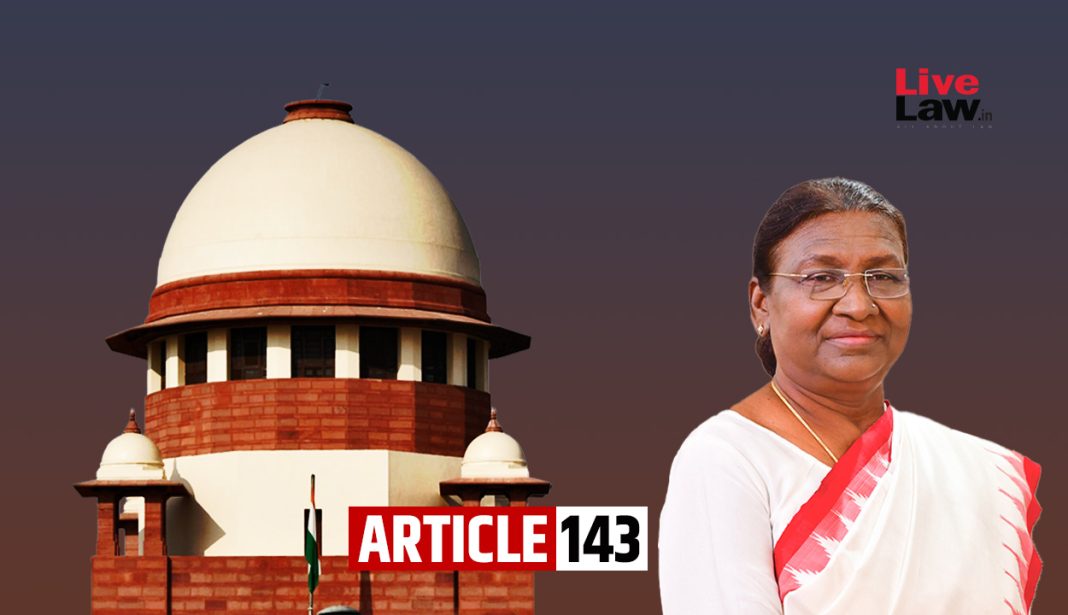The intricate dance between state legislative autonomy and federal oversight in India has seen a significant constitutional clarification from the Supreme Court. In a pronouncement that has garnered widespread attention, the apex court has firmly established that a State Governor retains the authority to reserve a bill, even one re-passed by the Legislative Assembly, for the President’s assent. This landmark interpretation, stemming from a crucial Presidential Reference, addresses long-standing ambiguities surrounding the Governor’s powers under Articles 200 and 201 of the Indian Constitution, potentially reshaping legislative processes and Centre-state dynamics.
For years, the extent of a Governor’s discretion, especially concerning bills returned to and subsequently re-passed by the Assembly, has been a subject of constitutional debate and political contention. The recent Supreme Court ruling provides much-needed clarity, underscoring the Governor’s pivotal role as a guardian of the Constitution and a crucial link in the federal chain.
Re-examining the Constitutional Framework for Bills
At the heart of this discussion lie Articles 200 and 201 of the Constitution, which delineate the Governor’s powers regarding bills passed by the State Legislature. Under Article 200, when a bill is presented to the Governor, they have four primary options: assent to the bill, withhold assent, return the bill for reconsideration by the Assembly (with or without recommendations), or reserve the bill for the consideration of the President.
The key area of contention arose when a Governor returns a bill to the Assembly for reconsideration, and the Assembly re-passes it, often without incorporating the Governor’s suggestions. The conventional understanding, sometimes influenced by parliamentary practice in other democracies, suggested that once a bill is re-passed, the Governor is largely bound to give assent. However, the Indian constitutional framework, with its unique federal structure and the Governor’s dual role as both a constitutional head of the state and a representative of the Union, necessitated a deeper judicial interpretation.
The Supreme Court’s recent clarification addresses precisely this scenario. It emphasizes that even after a bill has been returned and re-passed by the Assembly, the Governor is not divested of their constitutional power to reserve the bill for the President’s consideration. This power, enshrined in Article 201, remains a viable option, particularly when the Governor believes the bill might infringe upon central laws, impinge on fundamental rights, or raise broader constitutional questions that warrant presidential scrutiny.
The Apex Court’s Definitive Stance and its Rationale
The Supreme Court’s pronouncement is a significant reinforcement of the Governor’s discretionary powers within constitutional limits. The ruling clarifies that the Governor, while acting as the constitutional head, is not merely a rubber stamp for the state legislature, especially when complex legal and federal implications are involved. The ability to reserve a re-passed bill for the President’s assent serves as a vital constitutional safety valve, ensuring a layered review of state legislation.
The rationale behind this judicial interpretation is rooted in the principle of checks and balances inherent in India’s federal structure. By maintaining the Governor’s power to reserve a re-passed bill, the Supreme Court aims to prevent the arbitrary enactment of state laws that might conflict with national policies, central statutes, or even the basic structure of the Constitution. This mechanism allows for a higher level of scrutiny by the President, who acts on the aid and advice of the Union Council of Ministers, thereby introducing a central government perspective on state legislation without necessarily undermining state autonomy.
This ruling is a reminder that the Governor’s role is not merely ceremonial but carries substantial constitutional responsibilities. It provides an avenue for broader deliberation on legislative matters, particularly those that have a bearing beyond the state’s immediate jurisdiction. “This ruling fundamentally reinforces the Governor’s role as a vital constitutional check, ensuring that legislative actions in states are in harmony with the broader federal framework and national interest,” remarked a prominent constitutional law expert, reflecting on the judgment’s far-reaching implications.
Implications for Federal Governance and State Autonomy
The Supreme Court’s clarification is expected to have notable implications for federal governance in India. While some may view it as an enhancement of central oversight over state legislatures, the judgment is framed within the constitutional mandate to ensure harmonized legislative functioning across the nation. It highlights that the reservation power is not to be exercised arbitrarily or as a tool of political obstruction, but rather as a constitutionally mandated discretion when the Governor believes a bill necessitates presidential consideration.
States will now need to be even more mindful of the constitutional ramifications of their legislative actions, particularly when re-passing bills that have been returned by the Governor. This may lead to more rigorous internal deliberations and a greater emphasis on addressing the Governor’s concerns during the reconsideration phase. Ultimately, the ruling underscores the delicate balance India seeks to maintain between empowering state legislatures and ensuring that state laws operate within the overarching constitutional and federal framework.
In conclusion, the Supreme Court’s definitive interpretation concerning the Governor’s power to reserve a re-passed bill for Presidential assent marks a crucial development in India’s constitutional jurisprudence. It reaffirms the Governor’s critical role as a constitutional gatekeeper, adding a significant layer of federal oversight to state legislative processes. This clarification is poised to influence future interactions between State Assemblies and Raj Bhavans, fostering a more robust and constitutionally compliant legislative environment across the country.




